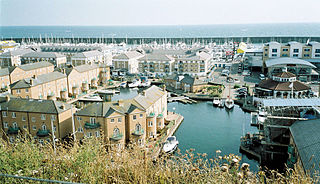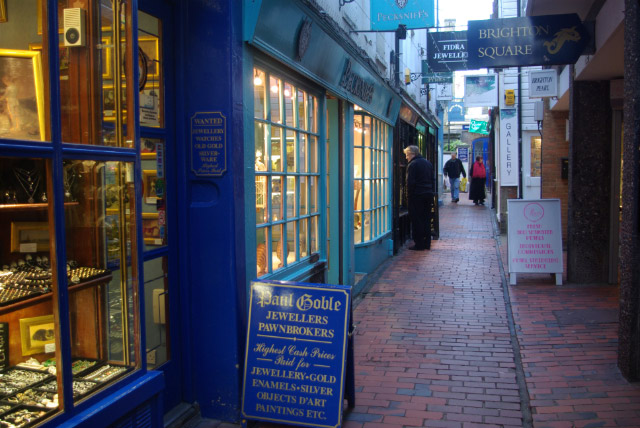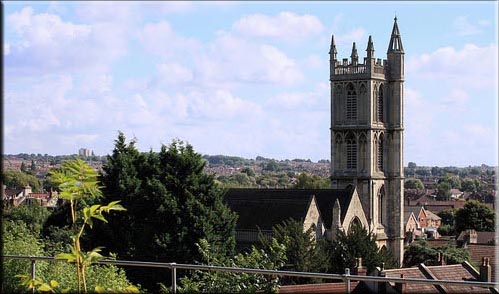 Brighton is the major part of the city of Brighton and Hove (formed from the previous towns of Brighton, Hove, Portslade and several other villages) in East Sussex, on the south coast of England. The ancient settlement of Brighthelmstone dates from before Domesday Book (1086), but it emerged as a health resort featuring sea bathing during the 18th century and became a destination for day-trippers from London after the arrival of the railway in 1841. Brighton has two universities and a medical school (operated jointly by both universities).
Brighton is the major part of the city of Brighton and Hove (formed from the previous towns of Brighton, Hove, Portslade and several other villages) in East Sussex, on the south coast of England. The ancient settlement of Brighthelmstone dates from before Domesday Book (1086), but it emerged as a health resort featuring sea bathing during the 18th century and became a destination for day-trippers from London after the arrival of the railway in 1841. Brighton has two universities and a medical school (operated jointly by both universities).
In June 1514 Brighthelmstone was burnt to the ground by French raiders during a war between England and France. Only part of the St Nicholas Church and the street pattern of the area now known as “The Lanes” survived. The first drawing of Brighthelmstone was made in 1545 and depicts what is believed to be the raid of 1514.

By 1780, development of the Georgian terraces had started and the fishing village became the fashionable resort of Brighton. Its growth was further encouraged by the patronage of the Prince Regent (later King George IV) after his first visit in 1783. He spent much of his leisure time in the town and constructed the Royal Pavilion. It was at this time that the modern form of the name came into common use. The arrival of the London and Brighton Railway in 1841 brought Brighton within the reach of day-trippers from London and population growth from around 7,000 in 1801 to over 120,000 by 1901.
 The Victorian era saw the building of many major attractions including the Grand Hotel (1864), the West Pier (1866) and the Palace Pier (1899). After boundary changes between 1873 and 1952, the land area of Brighton increased from 1,640 acres (7 km2) in 1854 to 14,347 acres (58 km2) in 1952. More recently, gentrification of much of Brighton has seen a return of it’s fashionable image. Recent housing in the North Laine, for instance, has been designed in keeping with the area.In 1997 Brighton and Hove were joined to form the unitary authority of Brighton and Hove, which was granted city status by Queen Elizabeth II as part of the millennium celebrations in 2000.
The Victorian era saw the building of many major attractions including the Grand Hotel (1864), the West Pier (1866) and the Palace Pier (1899). After boundary changes between 1873 and 1952, the land area of Brighton increased from 1,640 acres (7 km2) in 1854 to 14,347 acres (58 km2) in 1952. More recently, gentrification of much of Brighton has seen a return of it’s fashionable image. Recent housing in the North Laine, for instance, has been designed in keeping with the area.In 1997 Brighton and Hove were joined to form the unitary authority of Brighton and Hove, which was granted city status by Queen Elizabeth II as part of the millennium celebrations in 2000.
Next: Accommodation



